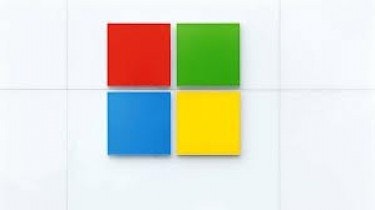Microsoft Corporation (NASDAQ:MSFT) revolutionized the Windows operating system a few months ago, shocking long-time PC fans with the concept of live tiles and ridding itself of the classic start-button/desktop traditional Windows format. It was definitely one of the biggest product releases for the tech giant in decades, but how did it do?
Not enough to boost profits, according to Microsoft Corporation (NASDAQ:MSFT), which reported a 4 percent drop in profits in the fourth quarter. Dragged down by sagging office and entertainment divisions, Microsoft’s numbers couldn’t quite impress.
The Windows 8 release comes at a time when Apple tablets like the iPad have, according to consumer reports, been clawing away at the sales of less expensive laptops, like those that run Windows. Unfortunately, the new OS has not been enough to boost PC sales, as shipments of personal computers dropped 6.4 percent in the final quarter of 2012. However, contrary to what these numbers might show, Windows sales, which account for more than 25% of Microsoft Corporation (NASDAQ:MSFT)’s total revenue, increased 24 percent, finishing at $5.88 billion. However, these numbers are a bit deceptive, as they include the sales before November, when the product actually hit the market. Had it only counted sales of the newest version of the operating system, sales would have only risen 11%.
With declining PC sales and a pretty steady correlation between Windows sales and PC sales, Microsoft Corporation (NASDAQ:MSFT) faces pretty serious problems. However, to try to overcome this, they are encouraging customers who already have PCs to upgrade to Windows 8. However, Windows believes their sales are being hurt because of a lack of touchscreen computers, like Ultrabooks, which can fully harness the capabilities of Windows 8.
Another way in which the new version of Windows is being sold is through their new tablet, the Surface. While Microsoft Corporation (NASDAQ:MSFT) has declined to comment on the Surface quantitatively with regard to sales, they have admitted that the number is small. They attribute this to the fact that, until recently, it was only available in Microsoft stores.
On a more positive note, Microsoft’s online services did finish the quarter up 11%, partially due to the search engine Bing. However, this was one of the few positive notes for Microsoft, which finished the quarter with net income at $6.38 billion, or 76 cents per share, down 4% from last year’s numbers of the same period. Revenue did rise 3%, however, to $21.46 billion, just missing analyst expectations.
Now, Microsoft is in talks to invest about $2 billion in Dell Inc. (NASDAQ:DELL) after discussions between the two companies, as well as private equity firm Silver Lake Partners in recent days. Sources close to the matter say that the deal could arrive within a week: a deal which would include four banks, each expected to divide a (roughly) $15 billion financing package using money from Silver Lake, Michael Dell’s 16% stake in the company, and even potentially Dell’s own cash. The deal comes at a time when Microsoft, over the past few years, has plowed cash into companies like Nokia Corporation (ADR) (NYSE:NOK) in exchange for the cell phone company to license the Windows Mobile operating system. In this instance, however, Microsoft did not buy a stake of Nokia: they simply agreed to give billions into departments like marketing and development. Unfortunately, struggles in Nokia sales have lead Microsoft to consider creating their own phone to possible even rival the Windows phones hat Nokia creates. Nokia’s stock is down 17% since the announcement almost two years ago.
What could the new deal mean for Dell and Microsoft? For Dell, it would serve as an interesting twist in the supposed quest to take the stock private. In the midst of a lagging PC market, Dell has been hit particularly hard, seeing sales drop nearly 21% in the fourth quarter year-over-year. Still, some analysts believe that the purchase could prove as a sort of insurance policy for Microsoft, giving them the ability to strengthen one of the companies that sells their product.
For now, neither Dell nor Microsoft seem to be in great positions, and neither of them has squeezed their way into my portfolio.
The article Microsoft Slides, Begins Talks With Dell originally appeared on Fool.com and is written by Michael Nolan.
Copyright © 1995 – 2013 The Motley Fool, LLC. All rights reserved. The Motley Fool has a disclosure policy.






